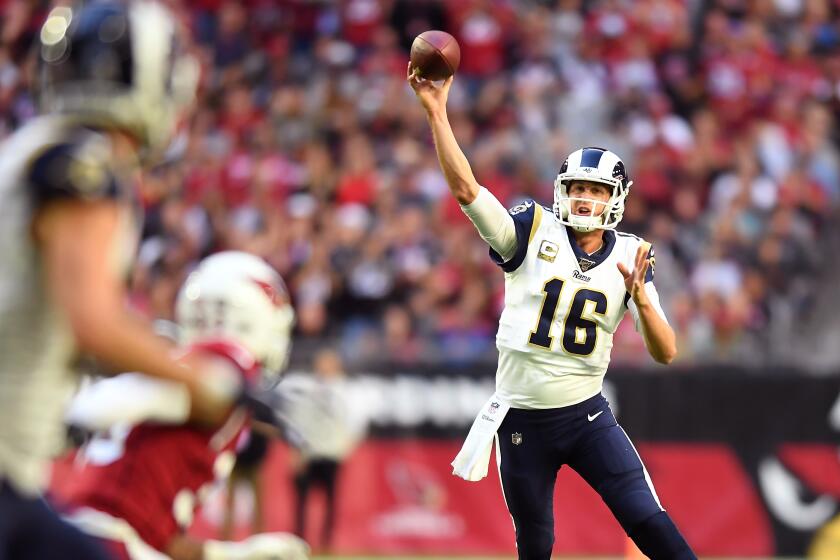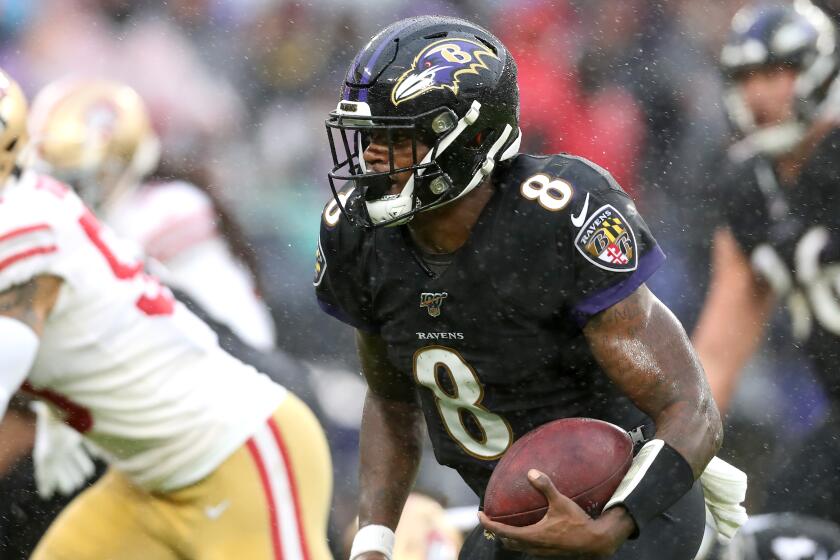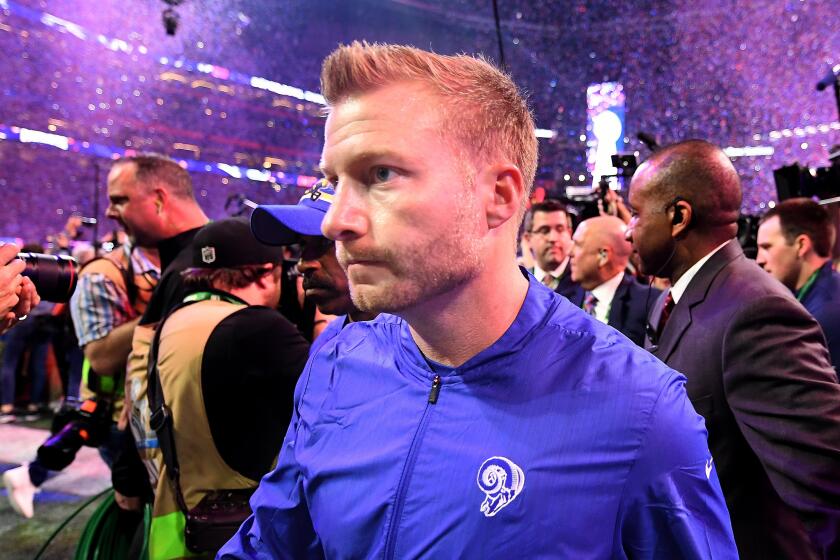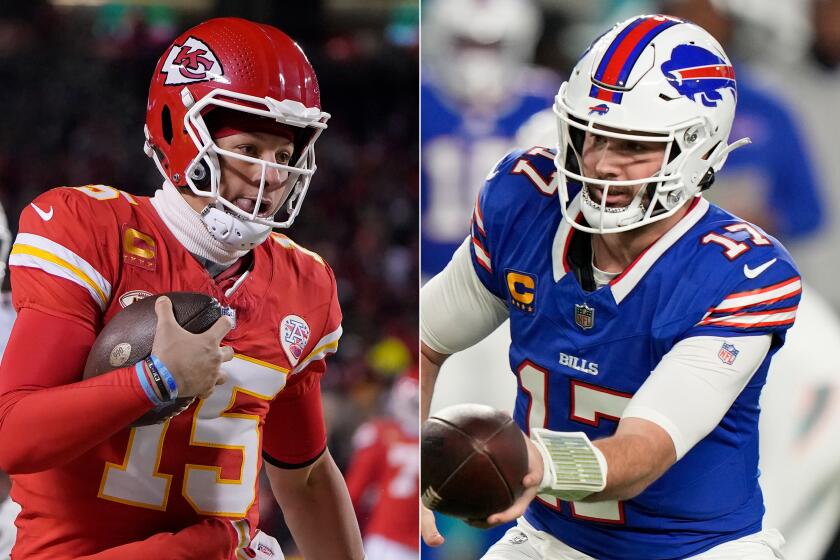Costly pass interference call sends Chargers to gut-wrenching loss to Broncos
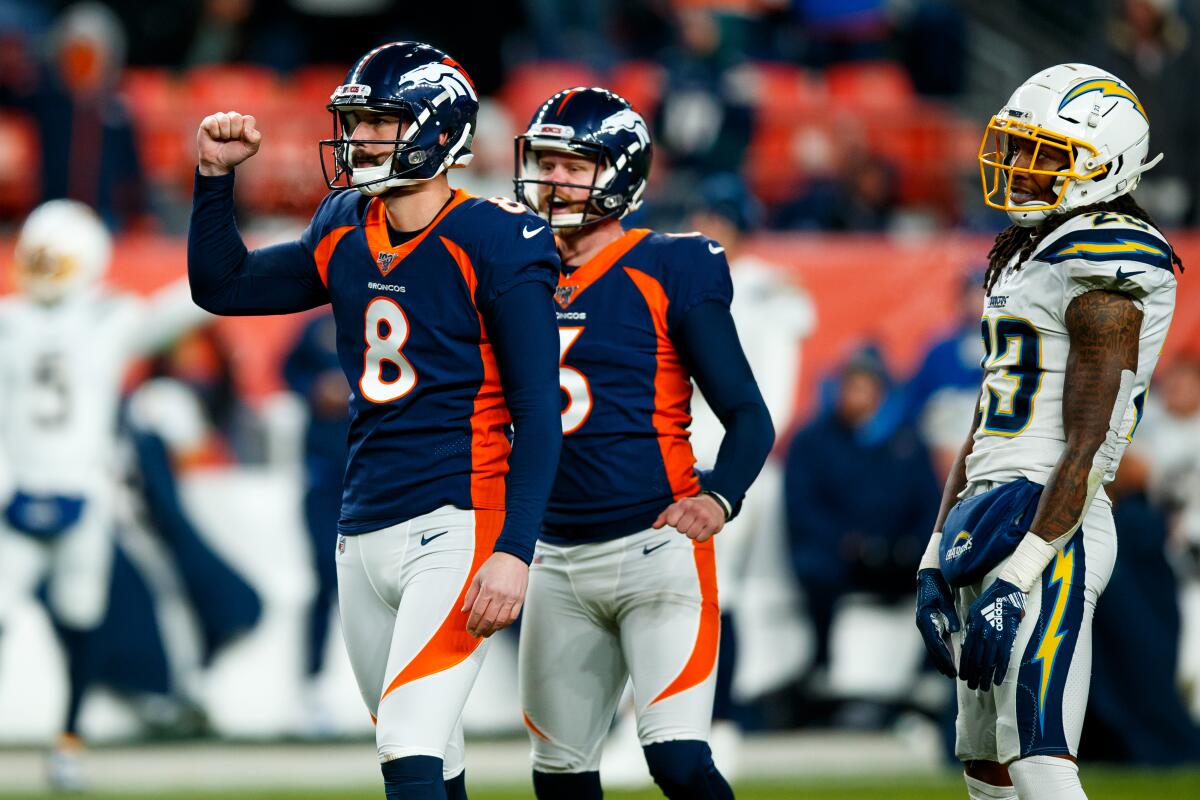
- Share via
DENVER — They’ve lost because of early deficits and late turnovers, first-half no-shows and second-half disappearances, the offense’s inability to make a play and the defense’s inability to make a stop.
Then Sunday, the Chargers lost because of a last-gasp pass interference penalty that made possible a one-play, 14-second, game-winning drive.
“It seems like we’re literally trying to figure out every way you can possibly lose a game,” running back Austin Ekeler said after his team fell to Denver — dramatically and bizarrely — 23-20. “It’s just frustrating, for sure.”
The Chargers have lost three in a row and, sitting at 4-8, can play out the final four weeks of the regular season with an eye on what it all might mean for 2020. Their chances for 2019 disappeared when Brandon McManus’ 53-yard field goal passed through the uprights as time expired.
“This feels like maybe six of the other losses we’ve had,” safety Rayshawn Jenkins said. “This is another one we should have won.”
Just seconds earlier, the Chargers had clawed back to erase a fourth-quarter deficit for the second time in the game. They put together an eight-play, 46-yard drive that included a conversion on fourth-and-11 — Mike Williams made the play with a catch teammate Keenan Allen called “damn crazy” — to pull even.
Michael Badgley hit a 46-yard field goal for a 20-20 tie with 14 seconds remaining.
At that point, the Chargers had fought back from being down early 14-0, from another interception by Philip Rivers (his eighth in three games) and from gifting the Broncos 10 points off turnovers.
Jared Goff delivers a ‘better’ performance, passing for 424 yards and two touchdowns in the Rams’ 34-7 victory over the Arizona Cardinals.
They had overcome a sluggish start that left them trailing to a rookie quarterback making his NFL debut, Drew Lock twice connecting with Courtland Sutton for touchdowns.
Finally tied at 20, all they had to do was prevent the football equivalent of a miracle to extend the game to overtime and start anew with a chance to make everything right again.
Following a bouncing kickoff and return, Denver took over at its 28-yard line with nine seconds to go. With the Chargers rushing four and playing deep, Lock fired long down the right sideline in the direction of Sutton and …
“I thought it was a no-call,” cornerback Casey Hayward said. “I thought the ball was uncatchable. I thought I was trying to find the ball myself. I think I have the same right to the ball that he do. But he made the call. We live with it.”
Baltimore Ravens quarterback Lamar Jackson weathered miserable conditions to run for 101 yards in a 20-17 victory over the San Francisco 49ers.
Hayward and Sutton collided as the pass sailed over their heads. Field judge Aaron Santi immediately threw his flag for defensive pass interference.
The NFL later confirmed the call via social media by explaining that Hayward had cut off Sutton’s path.
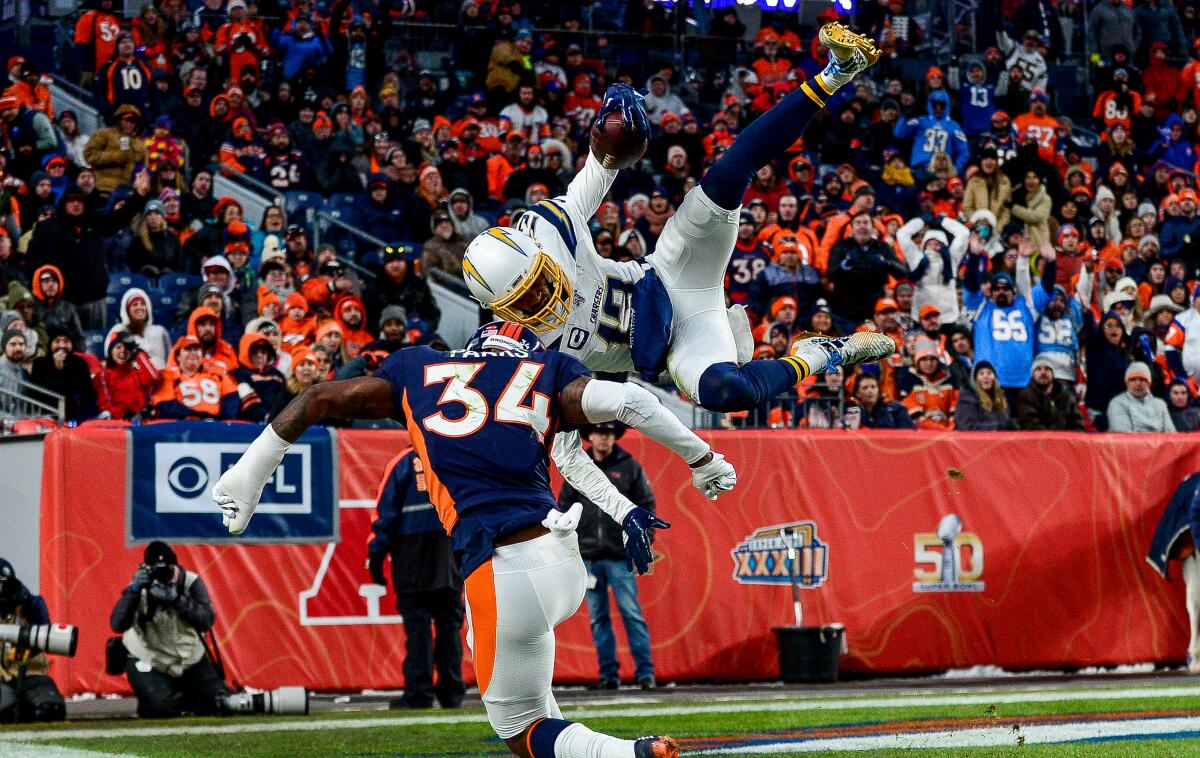
“Officials are not perfect, but I did not like that call at the end of the game,” Chargers coach Anthony Lynn said. “I don’t think that’s the way you end a football game. To make that call, it has to be clear and obvious, and I didn’t think that was clear and obvious.”
The flag resulted in a 37-yard penalty, Denver’s longest single-play advancement on a day when the Chargers defense limited Lock to 134 yards passing.
The ball was placed at the Chargers 35-yard line and set up McManus to end the game with his second 50-plus-yard field goal of the fourth quarter.
“I was surprised they made the call in general no matter when it was,” Hayward said. “They made it. There’s not too much you can do. … I mean, he ran into me. I have my ground. I tried to find the ball.”
Lynn said he initially thought the flag was going to be for offensive pass interference. He also said the game didn’t need to come down to a call by an official, a sentiment echoed by several Chargers.
“We just gave them the game,” Jenkins said. “We shouldn’t have spotted them 14. We put the game in the ref’s hands. I don’t blame them. I blame us.”
A year ago, winning made the Rams’ and Chargers’ futures look bright. Now, both will be coming off sub-par seasons when SoFi Stadium opens next year.
Still, the way this one ended — the suddenness of the situation and violent swing of emotions —was jarring, even for a team that has suffered each of its eight defeats by one score.
“We were just sitting on the bench, like, ‘What the heck just happened?’ ” Ekeler said. “It was kinda just like a blindside. But I was looking at the guys, like, ‘We just lost the game.’ It felt like we were about to go into overtime, you know.”
The pass interference penalty ended an afternoon that had other rough spots for Hayward. He was the defender on both of Sutton’s first-quarter touchdowns. The first came on a spectacular, one-handed diving catch in the end zone. The second was the result of Hayward briefly losing Sutton after Lock scrambled a couple steps to his right.
But it was three quarters later when the real frustration arrived for the Chargers.
“We’re good enough to put these games away earlier, and every week we somehow fail to do so,” running back Melvin Gordon said. “And, every time, it bites you in the butt in the end.”
More to Read
Go beyond the scoreboard
Get the latest on L.A.'s teams in the daily Sports Report newsletter.
You may occasionally receive promotional content from the Los Angeles Times.

